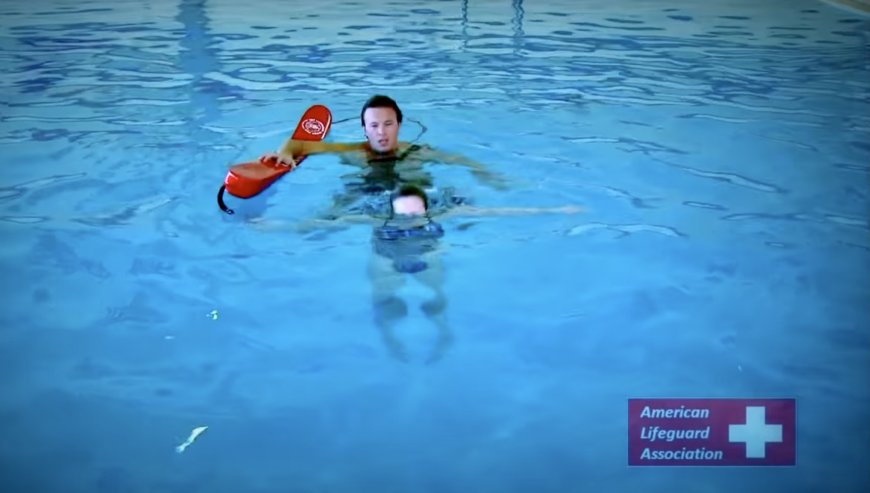Why Is Lifeguard Training Crucial for Water Safety?
Discover why lifeguard training is crucial for water safety. Learn about the benefits, career opportunities, and the comprehensive programs offered by the American Lifeguard Association.

Water safety is a critical concern for communities around the world. Whether at a beach, pool, or any other aquatic environment, ensuring the safety of individuals is paramount. One of the most effective ways to enhance water safety is through comprehensive lifeguard training.
The American Lifeguard Association (ALA) offers exceptional programs designed to equip lifeguards with the skills and knowledge necessary to prevent accidents and respond effectively to emergencies. This article explores the importance of lifeguard training, the benefits of such programs, and the career opportunities available to certified lifeguards.
The Importance of Lifeguard Training
Preventing Accidents and Injuries
One of the primary goals of lifeguard training is to prevent accidents and injuries. Lifeguards trained by the American Lifeguard Association learn to identify potential hazards and take proactive measures to mitigate risks. This includes recognizing unsafe behaviors, understanding water currents, and maintaining vigilant surveillance. By preventing accidents before they occur, lifeguards play a crucial role in ensuring the safety of swimmers and other water users.
Emergency Response Skills
Even with the best prevention strategies, emergencies can still happen. Lifeguard training provides individuals with the skills needed to respond quickly and effectively to a wide range of emergency situations. The American Lifeguard Association's training programs cover essential lifesaving techniques, such as CPR, first aid, and rescue maneuvers. These skills are vital in managing situations like drowning, spinal injuries, and other medical emergencies that can occur in aquatic environments.
Comprehensive Training Programs
In-Depth Curriculum
The American Lifeguard Association offers a comprehensive curriculum that covers all aspects of lifeguarding. Their lifeguard training program are designed to ensure that participants gain a thorough understanding of water safety principles, rescue techniques, and emergency response protocols. The curriculum includes both theoretical knowledge and practical skills, providing a well-rounded education for aspiring lifeguards.
Online Lifeguard Training
In today's digital age, online lifeguard training has become an increasingly popular option. The American Lifeguard Association offers robust online training programs that allow individuals to complete coursework at their own pace. This flexibility makes it easier for people to balance their training with other commitments. Online lifeguard training covers the same comprehensive curriculum as in-person classes, ensuring that participants receive the same high-quality education.
Benefits of Lifeguard Training
Enhanced Confidence and Competence
Completing lifeguard training with the American Lifeguard Association instills confidence and competence in individuals. The rigorous training process ensures that lifeguards are well-prepared to handle any situation that may arise. This confidence is crucial not only for the lifeguards themselves but also for the safety and reassurance of the public.
Career Opportunities
Lifeguard training opens up a variety of career opportunities. Certified lifeguards are in high demand at pools, beaches, water parks, and other aquatic facilities. The American Lifeguard Association's certification is widely recognized and respected, making it easier for certified lifeguards to find employment. Additionally, lifeguarding training can be a stepping stone to other careers in public safety, emergency response, and healthcare.
Lifelong Skills
The skills gained through lifeguard training extend beyond the workplace. Lifeguards develop valuable life skills such as leadership, communication, and decision-making. These skills are transferable to many other areas of life, making lifeguard training a worthwhile investment for personal and professional development.
The Role of the American Lifeguard Association
Industry Leadership
The American Lifeguard Association is a leader in the field of lifeguard training and water safety. With a commitment to excellence and innovation, the ALA continually updates its training programs to reflect the latest research and best practices. This dedication to quality ensures that lifeguards trained by the ALA are among the best-prepared professionals in the industry.
Comprehensive Support
In addition to providing top-notch training programs, the American Lifeguard Association offers comprehensive support to its certified lifeguards. This includes ongoing education opportunities, resources for professional development, and a network of peers and mentors. The ALA is dedicated to supporting lifeguards throughout their careers, ensuring they remain skilled and confident in their roles.
Community Impact
The impact of the American Lifeguard Association extends beyond individual lifeguards to the broader community. By training highly skilled lifeguards, the ALA contributes to safer aquatic environments, reducing the risk of accidents and enhancing public safety. This positive community impact is a testament to the importance of quality lifeguard training.
Final Opinion
Lifeguard training is crucial for ensuring water safety and preventing accidents in aquatic environments. The American Lifeguard Association offers comprehensive training programs that equip individuals with the skills and knowledge needed to excel as lifeguards. Through a combination of theoretical education and practical training, the ALA prepares lifeguards to prevent accidents, respond effectively to emergencies, and provide a safe environment for swimmers and other water users.
By choosing the American Lifeguard Association for lifeguard training, individuals gain access to industry-leading education, ongoing support, and a respected certification that opens up numerous career opportunities. Whether through traditional in-person classes or flexible online training, the ALA's programs ensure that lifeguards are well-prepared to protect and save lives. Investing in lifeguard training is not only a professional benefit but also a critical contribution to community safety and well-being.













